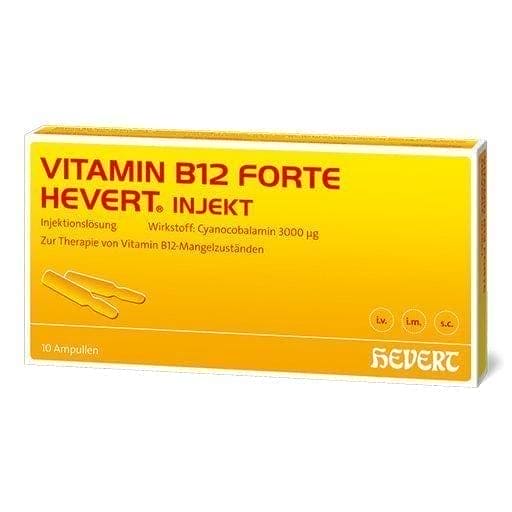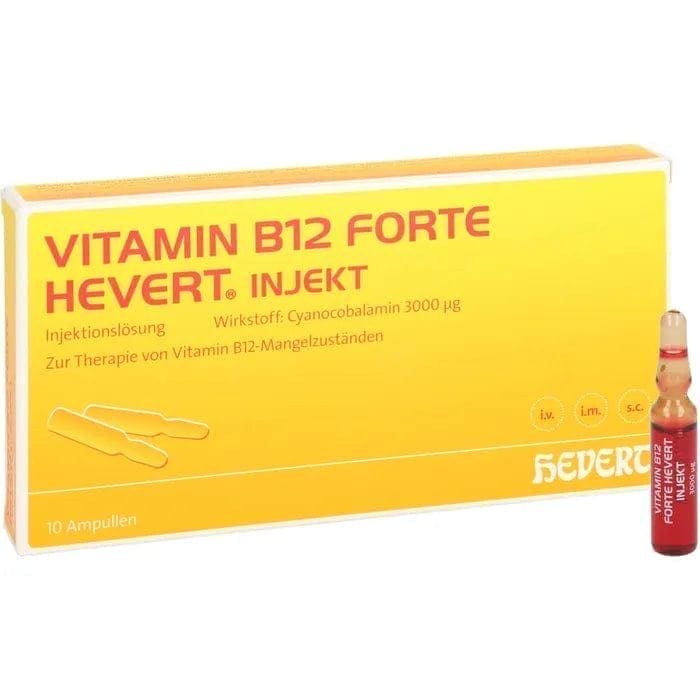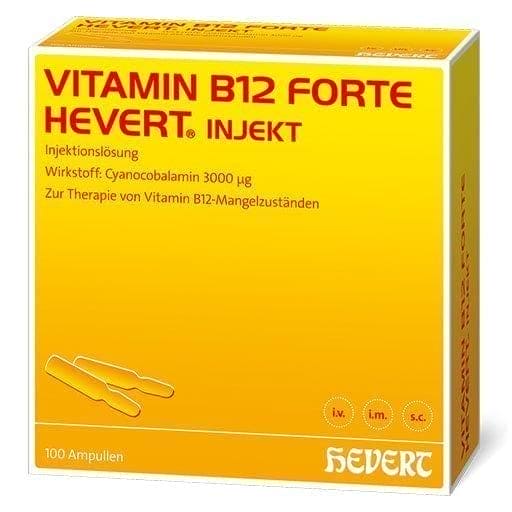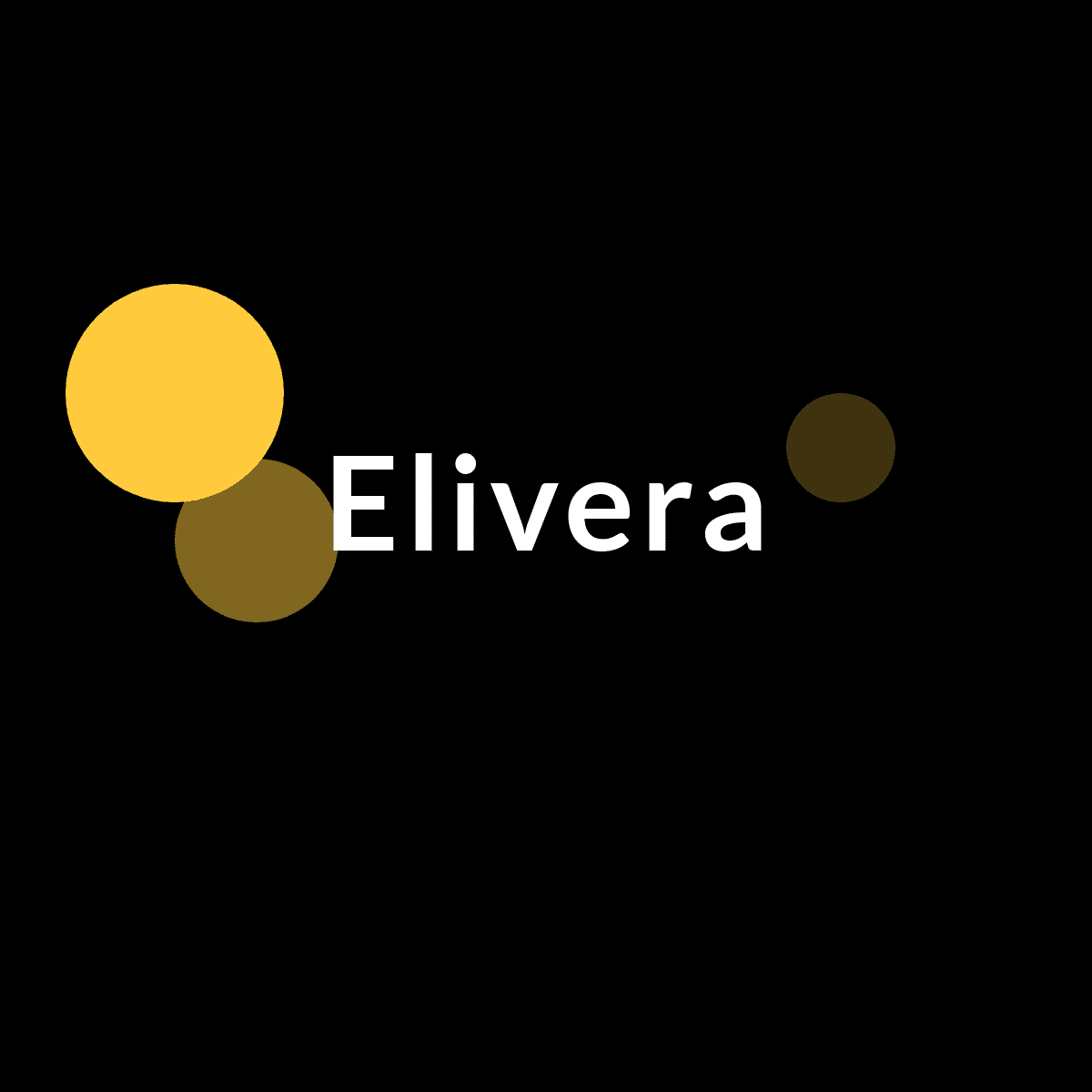Hevert Arzneimittel GmbH & Co. KG
VITAMIN B12 HEVERT forte Inject ampoules, vitamin B12 deficiency
VITAMIN B12 HEVERT forte Inject ampoules, vitamin B12 deficiency
Couldn't load pickup availability
VITAMIN B12 HEVERT forte Inject ampoules, vitamin B12 deficiency
Vitamin B12 forte Hevert inject Vitamin B12 forte-Hevert inject, VITAMIN B12 HEVERT forte Inject ampoules, vitamin B12 deficiency.
Areas of application:
Vitamin B12 deficiency that cannot be remedied with nutrition.
with vitamin B12 deficiency.
active VITAMIN B12 HEVERT forte Inject ampoules, vitamin B12 deficiency ingredients
- 3 mg cyanocobalamin
VITAMIN B12 HEVERT forte Inject ampoules, vitamin B12 deficiency excipients
- ammonium sulfate
- sodium chloride
- Hydrochloric acid for pH adjustment
- water for injections
3000 µg vitamin B12
Composition:
1 ampoule of 2 ml contains: cyanocobalamin (vitamin B12 cyano complex) 3000 µg (3 mg)
Excipients: ammonium sulphate, sodium chloride, hydrochloric acid solution, water for injections.
Areas of application VITAMIN B12 HEVERT forte Inject ampoules, vitamin B12 deficiency:
Vitamin B12 deficiency that cannot be remedied with nutrition.
Vitamin B12 deficiency can manifest itself in the following clinical pictures: Hyperchromic macrocytic megaloblastic anemia (Perniciosa, Biermer's anemia, Addison's anemia). Funicular Spinal Disease.
A vitamin B12 deficiency confirmed by laboratory diagnostics can occur in the case of years of malnutrition (e.g. due to a strict vegetarian diet); Malabsorption due to insufficient production of intrinsic factor, diseases in the end section of the ileum, eg sprue, fish tapeworm infection or blind-loop syndrome; congenital vitamin B12 transport disorders.
Dosage:
Unless otherwise prescribed, 1 ml "Vitamin B12 forte-Hevert injekt" (equivalent to 1500 µg cyanocobalamin) is administered twice a week at the beginning of treatment in the first few weeks after diagnosis. If there is a proven vitamin B12 absorption disorder in the intestine, 100 µg cyanocobalamin is then administered once a month.
"Vitamin B12 forte-Hevert injekt" is usually administered intramuscularly. However, it can also be given slowly intravenously.
Contraindications:
intolerance to vitamin B12.
Pregnancy and lactation: The recommended daily intake of vitamin B12 during pregnancy and lactation is 4 µg. Based on previous experience, higher doses have no adverse effects on the unborn child. Vitamin B12 is excreted in breast milk.
Side effects:
Skin symptoms (acne as well as eczematous and urticarial drug reactions) and hypersensitivity symptoms (anaphylactic or anaphylactoid reactions) have been observed in individual cases.
Interactions:
None known.
Vitamin B12 is mainly formed and stored in the liver. As a catalyst, vitamin B12 has a decisive influence on carbohydrate, fat and protein metabolism and protein synthesis. In particular, nerve cell functions and the formation of red blood cells (erythropoiesis) depend on an adequate supply of vitamin B12.
In the case of vitamin B12 deficiency, the blood-forming tissues are affected first, but also the nervous system, because vitamin B12 is jointly responsible for the formation of the myelin sheaths in the nervous system.
In clinical deficiency states, usually as a result of insufficient absorption of vitamin B12, such as after extensive small bowel resection and small bowel irritation (dysbiosis of the bowel), the resorption area becomes smaller or blocked; including diverticulosis and blind loop syndrome. However, vitamin B12 deficiencies can also occur after drug therapy with neomycin, colchicine, PAS preparations and in the case of tapeworm infestation.
As a result of gastric mucosal diseases and after gastrectomy, an intrinsic factor deficiency can occur, which is of essential importance for the absorption of vitamin B12 in the stomach. Intrinsic factor deficiency is often the cause of vitamin B12 deficiency.
After exhaustion of the liver reserves, pernicious anemia, symptomatic psychoses and funicular spinal diseases occur, which initially manifest themselves in paresthesia with a tingling sensation and weakened muscle tone, accompanied by depressive moods. The parenteral administration of "Vitamin B12 forte-Hevert injekt" can quickly and permanently remedy symptoms of illness caused by a lack of vitamin B12.
VITAMIN B12 HEVERT forte Inject ampoules, vitamin B12 deficiency Notes:
"Vitamin B12 forte-Hevert injekt" ampoules can also be used as drinking ampoules if required. "Vitamin B-Complex forte Hevert" tablets (with vitamins B1, B6 and B12) can be used for long-term oral therapy.
Materials
Materials
Shipping & Returns
Shipping & Returns
Dimensions
Dimensions
Care Instructions
Care Instructions






